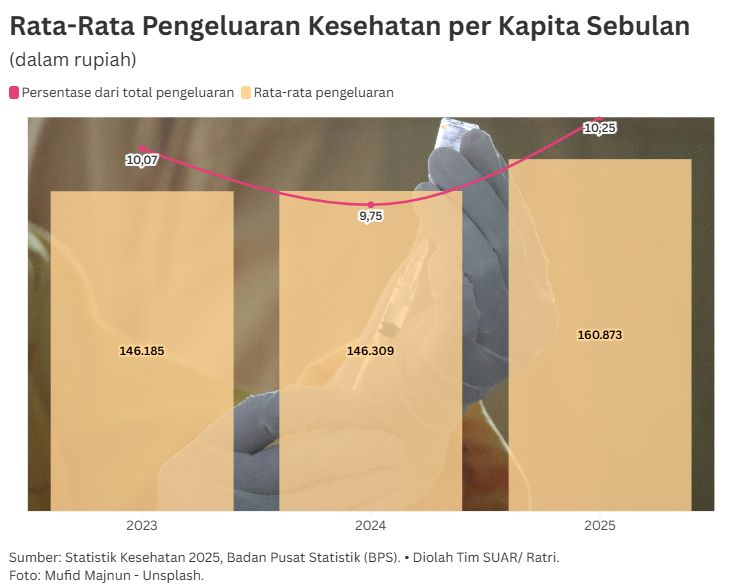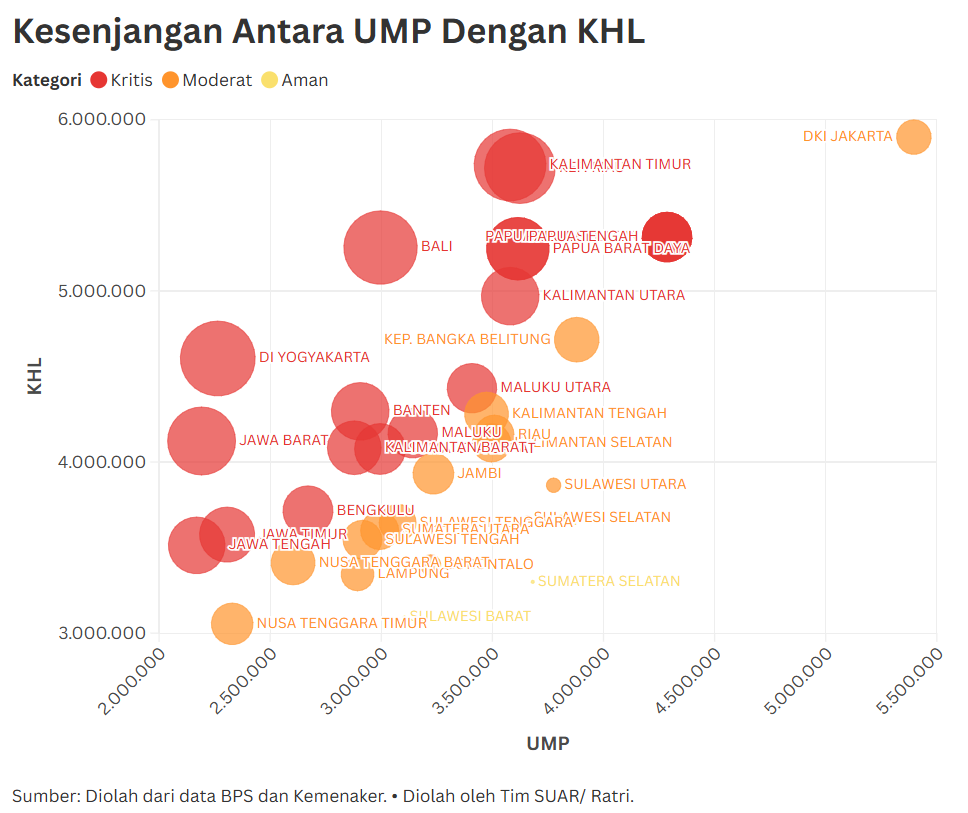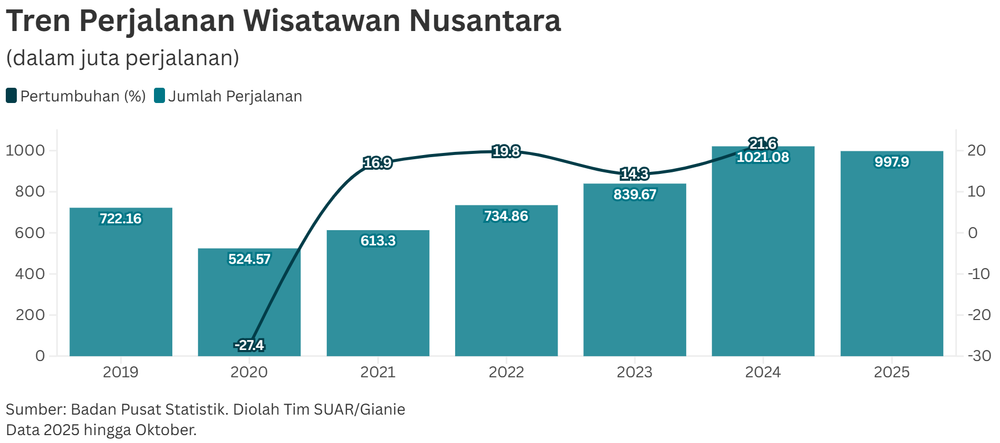Indonesia's digital economy continues to grow positively, positioning Indonesia as a major contributor to the regional digital landscape. The total Gross Merchandise Value (GMV) of Indonesia's digital economy is projected to reach US$90 billion in 2024. This figure is up 18% in two years.
This solid GMV growth is supported by excellent performance in various key sectors. The e-commerce sector remains the largest contributor, projected to reach a GMV of US$65 billion in 2024. Meanwhile, the Online Travel sector recorded the most impressive performance with a surge of 108% from US$3 billion in 2022 to US$7 billion in 2023, and is expected to reach US$9 billion in 2024.
Other sectors, such as transportation and food, recorded a GMV value of US$9 billion and the Online Media sector reached US$8 billion in the same period. This diversification of growth across sectors underscores the deepening penetration of digital technology into various aspects of consumer and business life in Indonesia.
More than just transactions of goods and services, Digital Financial Services (DFS) also play a role as the foundation of the digital ecosystem. This sector shows resilience with significant growth, despite facing strict regulations. Online payments are predicted to record a Gross Transaction Value (GTV) of US$404 billion in 2024.
This achievement is accompanied by expansion in other segments, including online lending whose loan book balance is projected to reach US$9 billion, and Online Investment with an Assets Under Management (AUM) value of US$5 billion in 2024. The growth of digital financial services is one of the most important factors in promoting financial inclusion and facilitating transaction flows in the digital economy.
This achievement puts Indonesia in a central and dominant role in the ASEAN region. Its closest competitor, Thailand, recorded a GMV value of about half of Indonesia's. With a large population base, internet adoption rates, and high smartphone penetration, Indonesia consistently contributes the majority to the total GMV of the regional digital economy.
This rapid growth rate not only attracts foreign direct investment (FDI), but also places Indonesia as a reference model for developing countries' economies. The strength of Indonesia's digital economy is also evident from its ability to produce a number of unicorn and decacorn companies that have successfully created innovative technology solutions.
Looking ahead, the growth of Indonesia's digital economy is sure to continue to soar. The overall GMV value for 2025 is estimated to reach US$130 billion, or grow 44.44% from the previous year.
The combination of sustained digital infrastructure improvements, policies that support innovation, and a population that is adaptive to technology are factors in Indonesia's growth as the locomotive of the ASEAN digital economy.





